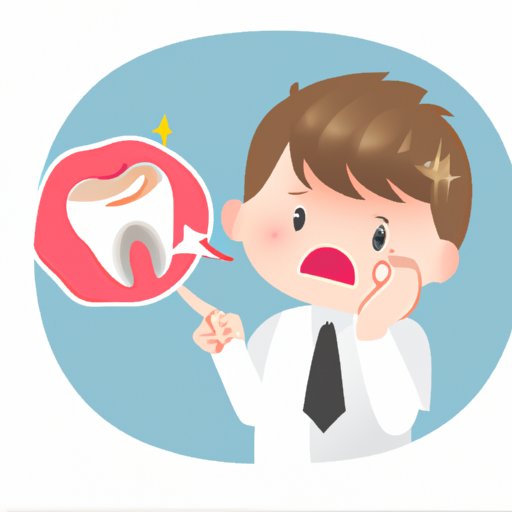
Introduction: Explanation of Cavities and the Importance of Dental Care
Cavities or tooth decay is a common oral health problem that affects people of all ages. They develop when the bacteria in your mouth produce acid that eats away the enamel on your teeth, leading to tooth decay. If left untreated, cavities can cause serious dental problems, including tooth loss and gum disease. Therefore, it’s essential to take care of your oral health and seek treatment for cavities as early as possible. In this article, we’ll be discussing how long you can leave a cavity untreated, the risks and consequences of doing so, and tips on how to prevent cavities.
Risks of Leaving a Cavity Untreated
Leaving a cavity untreated poses several risks to your oral health. Below are some of the risks and consequences of doing so:
Tooth Decay
When a cavity is left untreated, the decay will continue to spread, resulting in more extensive damage to your tooth. The decay can eventually progress and reach the pulp of the tooth, which can be extremely painful and require a root canal or extraction.
Pain
Cavities that are left untreated can result in significant pain, especially when chewing or consuming hot or cold foods and drinks. Over time, the pain may worsen and become more severe, affecting your daily routine and quality of life.
Infection
Untreated cavities can lead to bacterial infections that can cause swelling and affect the gums, leading to periodontitis or gingivitis. The bacteria can also spread to other parts of the body and cause serious health problems like heart disease and pneumonia.
Importance of Regular Dental Checkups and Cleanings
One of the best ways to prevent cavities from becoming more problematic is by regularly seeing a dentist. A dentist can detect cavities early on and treat them before they require more invasive or expensive procedures. In general, the American Dental Association recommends that individuals have dental checkups and cleanings every six months. However, depending on your oral health, your dentist may suggest more frequent or less frequent checkups and cleanings.
Expert Advice and Tips for Preventing Cavities
Aside from seeing your dentist regularly, there are several things you can do to prevent cavities. Below are some expert tips:
Brushing and Flossing Regularly
Consistently brushing your teeth twice a day with fluoride toothpaste and flossing once a day can help prevent cavities. Brushing your teeth helps remove plaque, while flossing removes bacteria and food particles that may be hiding in between your teeth.
Eating a Healthy Diet
Eating a healthy, balanced diet with plenty of fruits and vegetables can help prevent cavities. Sugary and acidic foods should be consumed in moderation, as they can cause tooth decay and harm your overall health.
Avoiding Sugary Foods and Drinks
Sugary snacks and drinks can cause tooth decay and increase your risk of cavities. Limit your consumption of sugary foods and drinks, and choose healthier snacking options like cheese and non-sugary fruits.
Successful Cavity Treatments and the Benefits of Early Addressing of Cavities
If you have a cavity, your dentist may recommend a filling. Fillings are used to stop the decay and restore the affected tooth back to its normal function. If the cavity is more extensive, a root canal or extraction may be necessary. However, the earlier a cavity is detected, the easier it is to treat, and the less invasive the procedure will be.
Conclusion
In conclusion, it’s important to take care of your oral health and seek treatment for cavities as soon as possible. The longer you leave a cavity untreated, the more severe the consequences can be. By seeing your dentist regularly, practicing good oral hygiene habits, and making healthy choices, you can prevent cavities and maintain good oral health.
If you suspect you may have a cavity, don’t hesitate to schedule a dental checkup and seek treatment. Your teeth and gums will thank you.




